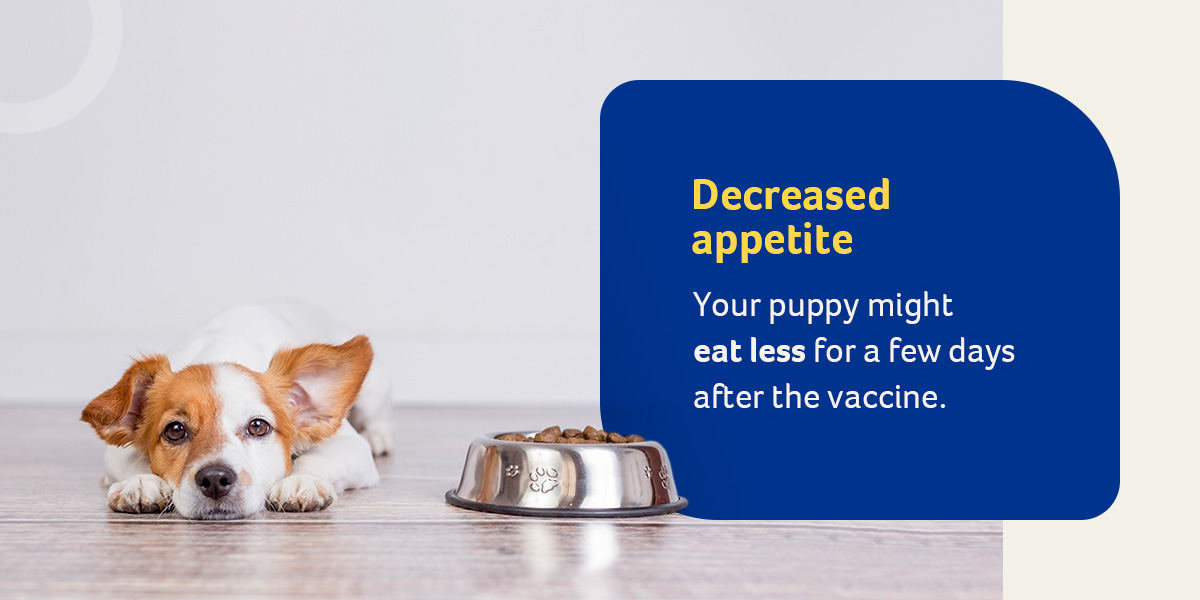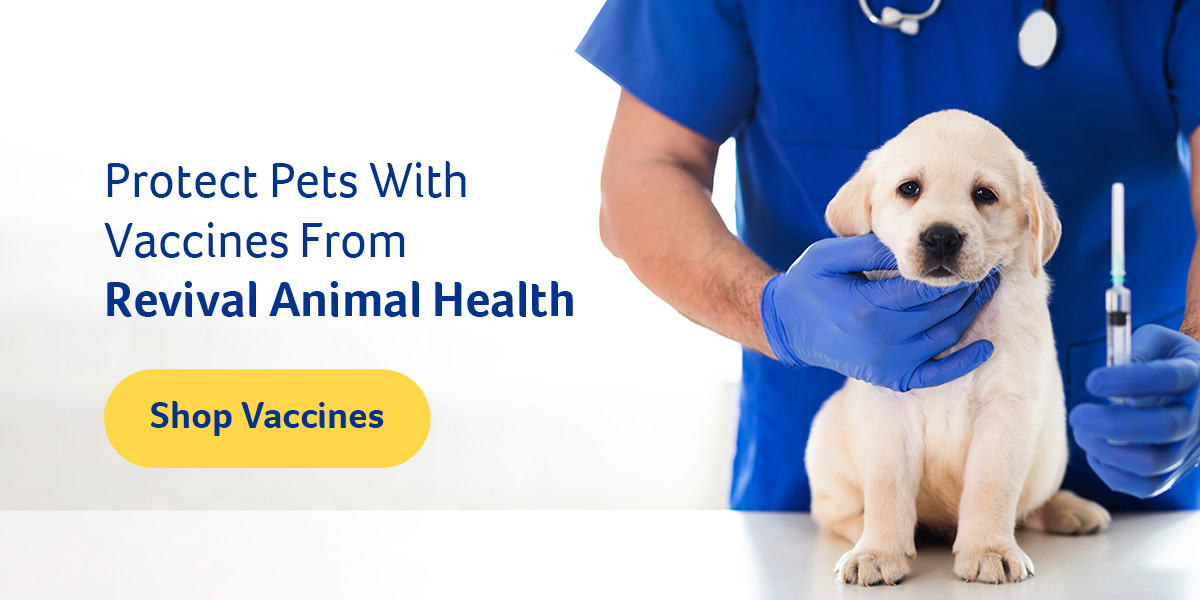Protecting your puppy from a range of serious diseases, like distemper and rabies, is essential to their continued health. Following a proper vaccination schedule for your puppy helps you raise healthy pets.
Before vaccinating your puppies, you might be concerned with the possible side effects of vaccinations. There are a few mild side effects that are expected when vaccinating puppies. But puppies will rarely experience serious reactions. In this article, we walk you through common puppy vaccine side effects and how to take care of your puppy after a vaccination.
Why Do Vaccines Have Side Effects?
To understand why vaccinations have side effects, we need to know how they work. Vaccines use a modified version of the virus or infection to trigger your puppy’s immune system. Once the vaccination and booster schedule is complete, your dog’s immune system will “remember” the disease and how to fight it. This is how vaccines provide dogs with immunity to several illnesses. If your dog ever encounters the disorder in the future, their body can identify and destroy it.
Because vaccines stimulate a puppy’s immune response, their body works hard to deal with the virus by creating antibodies and memory cells for the disease being vaccinated against. The result is that your puppy will likely be lethargic and possibly show signs of having a cold. Remember, a small, modified portion of a disease has been safely injected into your puppy.
Different vaccines can cause different reactions in puppies. Some vaccines, such as ones for the parvovirus, rabies and distemper, can cause mild reactions in puppies, if they cause any.
In most cases, the size and weight of the puppy can impact how they react. Studies have shown that smaller dogs are more likely to have reactions to vaccines, especially if they receive multiple vaccines in one visit.
Common Side Effects to Expect
Side effects are common when getting vaccinated. They result from your puppy’s system fighting and creating a response to the altered virus that has been safely introduced to their system. Most side effects are mild and should not be a reason for concern. Vaccines mainly result in minor behavioral changes in your puppy, including sleeping more or seeking attention less often. Some of the most frequent side effects include:
- Lethargy: This is a common side effect of puppy vaccination. Puppies might be less playful or energetic after a vaccination. You will probably notice they spend more time resting and sleeping.
- Fever: It is usual for puppies to have a slightly elevated temperature shortly after a vaccine.
- Swelling: If a vaccine is given as a shot, the injection site can become swollen or a small lump may form. This is normal, but the swelling should be monitored if it grows larger or becomes infected. The bump should not be painful.
- Cold symptoms: Intranasal vaccines are given to puppies through drops or sprays into a puppy’s nose. The side effects of intranasal vaccines may look like a cold and include sneezing, coughing and a runny nose.
- Discomfort: The area around a vaccine injection site might become sensitive to touch.
- Decreased appetite: Your puppy might eat less for a few days after the vaccine.
Any side effects should present within three days of receiving a vaccine. Once they present, they should resolve themselves within 48 hours. If your puppy’s symptoms seem to last longer, contact your vet.

Serious Side Effects: How Worried Should You Be?
In rare cases, puppies might experience severe side effects after vaccination. Severe reactions to vaccines are rare. A 2021 study shows that only 38.2 out of 10,000 dogs experience severe side effects from vaccinations. This is only 0.38% of dogs who receive vaccinations.
Certain risk factors can increase the potential for adverse side effects. Small breed puppies and spayed or neutered dogs have an increased risk of acute reactions. The more vaccines a puppy receives in one visit can also heighten the possibility of severe side effects. Your vet will consider all of these factors when administering vaccines to develop the proper vaccination schedule for your puppy.
It’s unlikely that your puppy will experience serious side effects. But it’s still helpful to know what these reactions are and how to spot them. Here are a few of the most common serious side effects:
- Allergic reaction: One of the most common side effects, allergic reactions include considerable swelling and pain at the vaccination site. Continued loss of appetite, lethargy and fever might also be present.
- Anaphylaxis: This acute allergic reaction includes facial swelling, itchiness, hives, vomiting, breathing difficulties and gastrointestinal issues, such as vomiting and diarrhea. Anaphylaxis should present shortly after receiving a vaccination but might only show up 48 hours after vaccination.
- Shock: Symptoms of shock can be a slow heart rate, low blood pressure and overall weakness. Puppies might also have a gray tongue.
- Infection: Vaccination sites are susceptible to infections and abscesses. Signs of infection include red or discolored skin, abnormal swelling, discharge and discomfort.
If you notice any of these signs in your puppy, contact your vet or take your dog to the veterinarian’s office.
How to Care for Puppies After Vaccination
Ensuring your puppy is well cared for after vaccination offers them comfort while their immune system is hard at work. During this time, you should also monitor them for any symptoms. Here are a few tips on how to care for your puppy after a vaccination:
- Wait at the vet: Wait at or near the vet’s office for a minimum of 30 minutes. If your puppy has any severe reactions, you will be close by for your vet to take action.
- Let them rest: Set up a comfortable place for your puppy to rest after their vaccination. This can be somewhere out of the way of other pets who might try and pester your puppy to play. Let them sleep and eat without interruptions. Ensure they have easy access to food and water.
- Monitor their symptoms: Side effect symptoms should appear within three days of vaccination, so keep a close eye on your puppy and document any changes. Take pictures or notes about discoloration, swelling and more so you can pick up on any abnormal changes as soon as possible.
- Give them time: Every puppy reacts differently to vaccinations — give them time to recover from the vaccination. It might take them a week or so to return to their normal behavior based on the side effects they experience. Each puppy is different, and it may take some puppies longer to develop the desired immune response to a vaccine.
- Avoid the injection site: Vaccine sites can become painful. When petting or playing with your dog, avoid this spot.
Protect Pets With Vaccines From Revival Animal Health
Vaccines are essential to raising healthy dogs and protecting them from deadly diseases. Make vaccinations easy! Browse Revival Animal Health’s extensive range of vaccines today.
If you need help choosing the right vaccine for your puppy, call a Revival Pet Care Pro at 800.786.4751.
LEARN MORE:
What Vaccines Do Puppies Need? The Full Schedule
Protect your dog by following the proper puppy vaccination schedule. Puppy shots can prevent deadly diseases. View Revival Animal Health vaccines online today!
How Do Puppy Vaccinations Work?
What does the vaccine do to puppies? Puppy immunity to parvovirus, distemper and other canine diseases comes from its mother's colostrum, then puppy vaccinations. Learn how the puppy immune system works and when to give a puppy shots.
Cat and Dog Vaccination Guide
Does my dog need a Lepto vaccine? Is feline leukemia vaccine necessary? Learn about recommended dog vaccines and recommended shots for cats.
What to Expect With a New Puppy: Preventatives and Vaccines for Puppies
What shots do puppies need? What puppy worming schedule should I follow? What about flea and tick prevention for puppies? Dr. Greer offers her advice.
Written by: Marty Greer, DVM
Director of Veterinary Services
Marty Greer, Doctor of Veterinary Medicine, has 40+ years’ experience in veterinary medicine, with special interests in canine reproduction and pediatrics. She received her Doctor of Veterinary Medicine from Iowa State University in 1981. She’s served as Revival’s Director of Veterinary Services since 2019. In 2023, Dr. Greer was named the Westminster Kennel Club Veterinarian of the Year.
